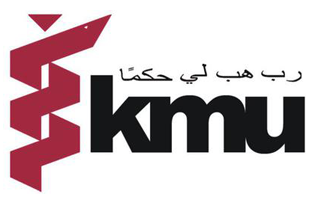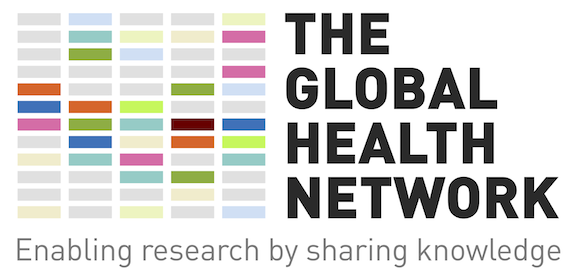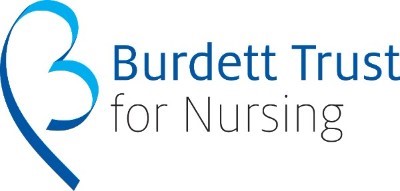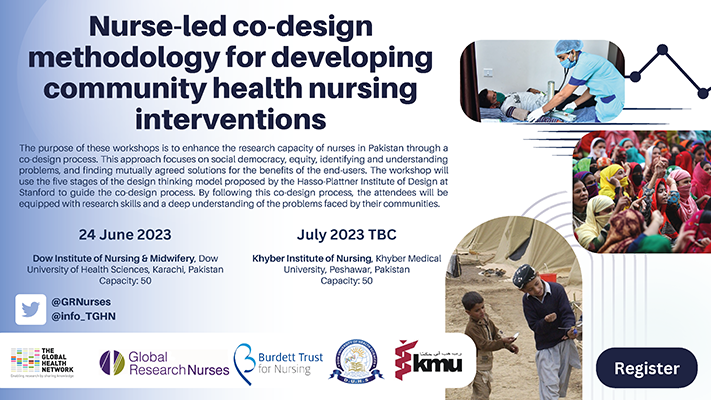
Nurse-led co-design methodology for developing community health nursing interventionsTwo face to face workshops
Workshop information The purpose of these workshops is to enhance the research capacity of nurses in Pakistan through a co-design process. This approach focuses on social democracy, equity, identifying and understanding problems, and finding mutually agreed solutions for the benefits of the end-users. The co-design process involves active engagement of the community and all stakeholders to explore problems, identify priorities, ideate, and finalize locally acceptable solutions tailored to the local needs. The involvement of community and stakeholders is crucial for the success of any population-based intervention program, and interventions designed through co-design have better acceptance among end-users and are easily implementable with little input from outsiders. The workshop will use the five stages of the design thinking model proposed by the Hasso-Plattner Institute of Design at Stanford to guide the co-design process. The first stage, Empathise, involves understanding the problem and conducting need assessments through both quantitative and qualitative research, developing rapport with the community, and engaging with local stakeholders. In the Define stage, empathy is unpacked into needs and insights to derive an actionable problem statement, and data analysis is used to inspire the ideation process. Ideate is the stage where the team generates "radical design" alternatives to explore a wide range of solutions. The Prototype stage involves developing a single mature intervention prototype required for testing or implementation phase, while the Test stage involves implementing the designed intervention in the target population and its evaluation. By following this co-design process, nurses in Pakistan will be equipped with research skills and a deep understanding of the problems faced by their communities. The interventions developed through this process will be locally relevant and sustainable, with better acceptance among end-users. This workshop will promote community engagement, foster partnerships with local stakeholders, and ultimately contribute to improving the health outcomes of Pakistan's population. Background to the workshop: Empathise: Define: Ideation: Prototype: Test: |
Workshop aim and learning objectives:
The workshop aims to introduce community health nurses, nurse researchers and nurse educators (including MSN and PhD nursing students) to the co-design methodology in developing community health nursing interventions. By the end of this one-day workshop, participants will be able to:
- Explain the rationale of using co-design methodology in community health nursing research projects in marginalized populations
- Understand the five steps of co-design research methodology
- Conduct nurse-led co-design community health research in marginalized population
24 June 2023 - Dow Institute of Nursing & Midwifery, Dow University of Health Sciences, Karachi

18 July 2023 - Khyber Institute of Nursing, Khyber Medical University, Peshawar







